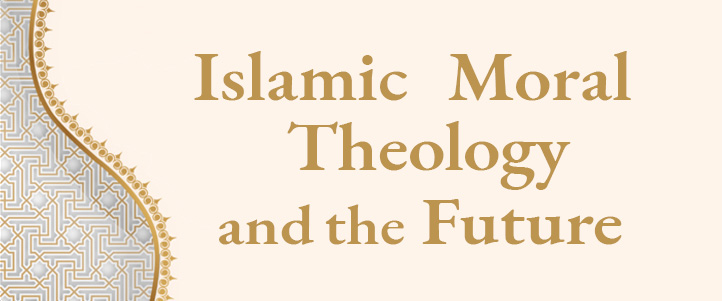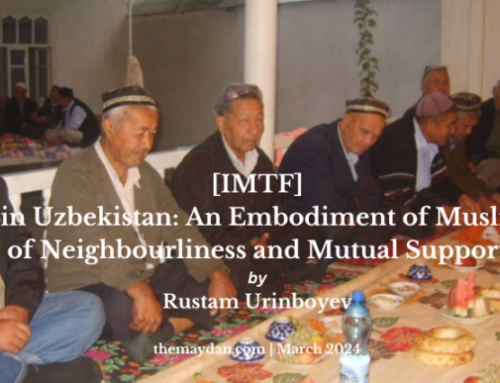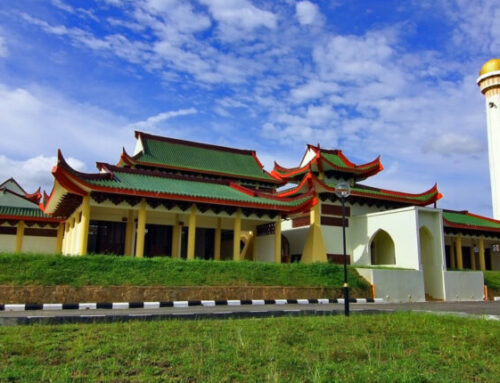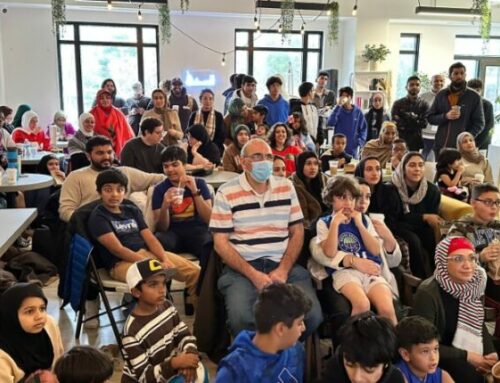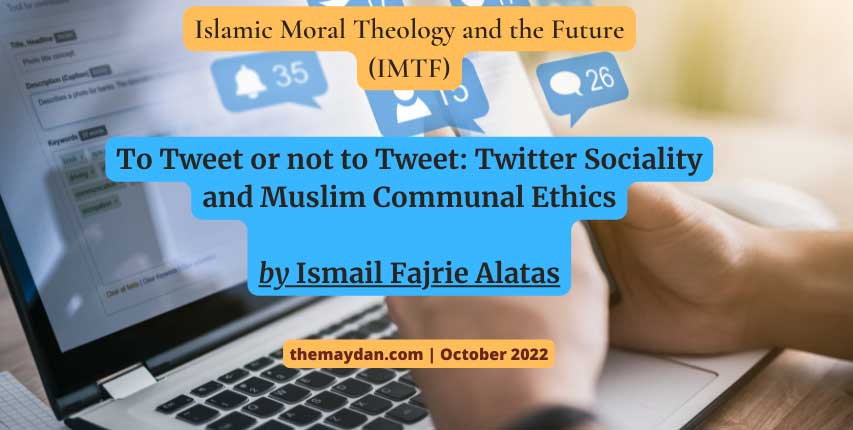
To Tweet or not to Tweet: Twitter Sociality and Muslim Communal Ethics
“Praise be to God I’m no longer on that jāhilī app (aplikasi jahiliah),” the middle-aged man sitting beside me said when he caught a glimpse of me checking Twitter moments before our plane taxied down the runway. For a moment, I was stunned by his peculiar way of initiating conversation. But that bewilderment immediately gave way to a curiosity piqued by his even more curious description of Twitter. Sensing a receptive audience, the man who introduced himself as Pak Wiryantoro, dedicated almost the entirety of our less-than-two-hour flight from Jakarta to Palangkaraya (Central Kalimantan) to discussing the deleterious effects of Twitter on Indonesian society, most of which I had previously heard or read about.[1] He talked of how Twitter circumscribes our exposure to different perspectives by affording us the ability to only follow accounts whose views are agreeable to us; how its algorithmic tools structure the tweets we see; how it engenders endless disputes and bullying; how physical distance coupled with anonymity emboldens people to dispense with civility; and how the emotional intensity of twitter wars frequently seeps out of the digital sphere, pitting friends, neighbors, and family members against each other. Having been on Twitter for more than a decade, Pak Wiryantoro is fully aware that Twitter is swarming with bots who disseminate all kinds of hoaxes or buzzers who actively crank up engagement with particular issues through incitements, derisions, and provocations. But those are not what worried him the most. More concerning to him was the effect those online interactions have had on his own self. Twitter, Pak Wiryantoro confessed, had turned him into a sardonic bully, not just online but also in his everyday interactions. He became increasingly hasty and inconsiderate, tempestuous and overreactive.
Having been on Twitter for more than a decade, Pak Wiryantoro is fully aware that Twitter is swarming with bots who disseminate all kinds of hoaxes or buzzers who actively crank up engagement with particular issues through incitements, derisions, and provocations. But those are not what worried him the most. More concerning to him was the effect those online interactions have had on his own self.
Pak Wiryantoro may not be a Muslim scholar or a theorist of Islamic ethics. He is an ordinary practicing Muslim with no formal training in Islamic sciences. Nevertheless, listening to him during our fortuitous encounter made me realize how he actively and reflexively thinks about Muslim communal ethics in times of change in ways that can help us address some of the questions posed by Maria Dakake in her second lead essay. If the first set of essays posted for the IMTF online roundtable discussion on Muslim communal ethics foregrounds iḥsān (virtue, goodness) and neighborliness as core duties human beings owe to those around them, Pak Wiryantoro’s critique of Twitter accentuates how a new media form poses a considerable challenge to the actualization of those ideals. His explanation points to the adverse effects of a particular kind of social interaction on the individual’s ability to cultivate personal virtue while simultaneously implicating individual failures on the level of personal virtue in the breakdown of ethical sociality. In what follows, I want to think with Pak Wiryantoro to understand how an ordinary practicing Muslim draws upon Islamic ethical concepts to conceive the relationship between Muslim personal and communal values and grapples with the tension that emerges between those values and Twitter-mediated sociality.
His explanation points to the adverse effects of a particular kind of social interaction on the individual’s ability to cultivate personal virtue while simultaneously implicating individual failures on the level of personal virtue in the breakdown of ethical sociality.
Jāhilī App
Central to Pak Wiryantoro’s aversion to Twitter is the term he evoked at the very beginning of our conversation: jahiliah. The Arabic term jāhilīyya — which appears four times in the Qurʾān and from which the Indonesian word jahiliah is derived — has been used in multiple ways: as a term to denote a state of ignorance, as a temporal connotation referring to pre-Islamic Arabia, or — in the modern Qutbian sense — as a concept to designate a form of life and governmentality founded on humans’ usurpation of divine sovereignty.[2] The official dictionary of the Indonesian language, for example, defines jahiliah as kebodohan (ignorance), although that somewhat restricted definition does not adequately capture how Pak Wiryantoro used the term.[3] Instead, he seemed to use jahiliah to describe a divisive form of sociality and a state of being nurtured by it, one that resonates with how the term is deployed in the Qurʾān and the ḥadīth to encapsulate the “unyielding spirit of rivalry and arrogance, and all the rough and rude practices coming from an extremely passionate temper.”[4] In this sense, a jāhilī sociality is menacing because it is schismogenic. It constitutes and is constituted by arrogance, irascibility, and the spirit of rivalry, generating a continuous cycle of reckless and hostile behaviors that jeopardizes social relations.
Despite several recent studies that illustrate how social media afford new forms of Islamic ethical sociality, Pak Wiryantoro resolutely considered Twitter a jāhilī app...
Despite several recent studies that illustrate how social media afford new forms of Islamic ethical sociality, Pak Wiryantoro resolutely considered Twitter a jāhilī app for two reasons.[5] The first has to do with its formal property. He suggested that the 140 character-limitation of a single tweet structures how we articulate ourselves. An idea, its complexity or multivalence notwithstanding, has to be presented in a synoptic and simplified format if it is to be tweeted (and retweeted). Even a thread consisting of a series of connected tweets cannot be too long to gain traction. This synoptic form — which he described as an “unnatural way of speaking” — is what renders a tweet susceptible to decontextualization and uncontrolled iteration, which in turn, aggravates the risk of misconstrual. Pak Wiryantoro also lamented how Twitter has become one of the most favored platforms for criticism and public shaming. While recognizing the benefits of Twitter for enabling ordinary people to publicly criticize governmental institutions or private corporations and hold them accountable, he strongly objected to such a mode of criticism when the target is a human being. As a Javanese Muslim, he was taught that criticism targeted at a specific individual ought to take the form of nasehat (counsel, Ar. naṣīḥa) privately conveyed in the most indirect and elegant manner. Plain and publicly-visible criticism, he contended, often leads to online shaming or collective bullying that not only hurts those we criticize, but also actuates their pride and defensive mechanisms, thereby engendering hostility.
The second reason for Pak Wiryantoro’s aversion to Twitter has to do with the temporality of Twitter interaction. For Pak Wiryantoro, the rapid pace of Twitter interaction makes us hastier and more reckless. People tend to read tweets swiftly as part of what has become a habitual act of scrolling and frequently retweet or react to a tweet without giving it much thought. Moreover, the desire for greater engagement encourages people to post tendentious and provocative tweets to garner immediate reactions that can extend their social life. Pak Wiryantoro recalled how Muslim scholars often remind people about their ethical obligation to perform tabayyun, that is, verifying and seeking clarification whenever they hear something troubling or controversial lest they make false accusations or propagate lies. But it is precisely the fast-paced temporality of Twitter interaction that, for him, renders tabayyun increasingly challenging to perform. Whenever he used to see an intense engagement over a controversial tweet, he would be drawn to hastily participate for fear of missing out. Knowing that a hotly-debated topic on Twitter rarely lasts for long, he wanted to ensure that his opinion was out there for others to read. In retrospect, however, he realized the repetitive nature of such interactions, as if the very act of debating or disputing — which can boost engagement and, if it is done well, may increase one’s followers — is the point of Twitter. As debating and disputing became a favored pastime, Pak Wiryantoro felt himself becoming increasingly more combative and overreactive.
Ḥilm as Personal-Communal Virtue
What emerged from Pak Wiryantoro’s critique is a set of reprehensible character traits that, in his view, is nurtured by Twitter-mediated interactions. This includes impetuosity, recklessness, irascibility, and belligerence, which together make up the state of jahl (or jahiliah as Pak Wiryantoro puts it). This jāhilī state of being fuels further jāhilī social interaction, resulting in a harmful cycle of reproduction that intensifies social polarization and division (polarisasi dan perpecahan). Here I want to suggest that what is implied but left unstated in Pak Wiryantoro’s critique is an ethical concept that sums up the antonyms of all the character traits that he characterized as jahiliah, namely, ḥilm. Like jahl, ḥilm is a complex concept, one that encapsulates several virtuous qualities including “forbearance, patience, clemency, and freedom from blind passion.”[6] A distinguishing character trait of a mature and intelligent person, ḥilm involves “judiciousness, keenness of mind, and prudence in action.”[7] Its possessor — one who is ḥalīm — is sagacious and patient in dealing with others, calm and unhurried in conduct, thoughtful and measured in acting.
Like jahl, hilm is a complex concept, one that encapsulates several virtuous qualities including “forbearance, patience, clemency, and freedom from blind passion.”[6] A distinguishing character trait of a mature and intelligent person, hilm involves “judiciousness, keenness of mind, and prudence in action.”[7]
…
human social interaction seems to be the principal field of hilm’s application, making it both a personal and communal virtue.
In many respects, ḥilm resonates with the virtue of ṣabr (patience). However the former’s range of application is limited to human interactions while the latter also includes forbearance in the face of divine decree.[8] Indeed, human social interaction seems to be the principal field of ḥilm’s application, making it both a personal and communal virtue. The Ḥaḍramī Sufi-scholar Jamāl al-Dīn Muḥammad b. ʿAbdallāh al-ʿAydarūs (d. 1031/1621 in Surat, India) even goes as far as identifying this virtue as foundational to Sufi spiritual wayfaring (sulūk). Its acquisition, al-ʿAydarūs writes in Īḍāḥ asrār ʿulūm al-muqarrabīn, is critical for those treading the Sufi path. Thus before discussing the intricacies of the Sufi path, al-ʿAydarūs devoted the first two chapters of his treatise to the ethics of speaking and listening. Ḥilm, he argues, is the mark of intelligence. Intelligent people do not speak or act before thinking carefully about its implications to themselves and others, ensuring that their utterances and actions do not nourish their ego (nafs).[9] Those who possess the virtue of ḥilm are taciturn, calm, unhasty, even-tempered, and forgiving. They refrain from participating in unnecessary argumentation and quarrel.[10]
Al-ʿAydarūs identifies human interaction as the ground that can either facilitate or hamper the cultivation of ḥilm. He cautions prospective spiritual wayfarers against interacting with those who demonstrate jāhilī character traits because “the self unconsciously learns from others.”[11] A capricious self, al-ʿAydarūs explains, has the ability to stir and provoke other selves in its proximity.[12] A cursory reading of the Īḍāḥ seems to suggest the ethical imperative of limiting one’s social sphere to a small and specialized community, say a scholastic or Sufi community, that can serve as a source of moral support for its members. In this view, social exposure to the broader society can only be detrimental to the cultivation of ḥilm. Similar reasoning seems to inform Pak Wiryantoro’s decision to quit Twitter. Far from being just a form of passivity or a reluctance to act, his withdrawal from Twitter is an active and creative attempt to cultivate an ethical state of being.
A more careful reading of the Īḍāḥ, however, reveals a more nuanced perspective. On the one hand, al-ʿAydarūs argues that the cultivation of ḥilm necessitates the support of a small and specialized community. On the other hand, he also maintains that ḥilm can only be actualized when it is properly tested and toughened up in the context of broader society. Al-ʿAydarūs quotes a Prophetic ḥadīth that says, “knowledge [is acquired] through learning and ḥilm through taḥallum” (al-ʿilm bi-l-taʿallum wa al-ḥilm bi-l-taḥallum).[13] Taḥallum is the endeavor of exercising ḥilm, which can only occur when one personally encounters and is called upon to respond to foolish, impetuous, and belligerent behaviors. In this sense, a jāhilī form of sociality becomes the very site for further development and realization of ḥilm. Withdrawing from an ethically deleterious social interaction, whether online or offline, may be a significant initial step. But the point is to humbly return to it, interact, and respond to jāhilī comportments with words of peace.
Ismail Fajrie Alatas is assistant professor of Middle Eastern and Islamic Studies, and History at New York University and an associate editor of the Journal of the Royal Asiatic Society. He is the author of What is Religious Authority? Cultivating Islamic communities in Indonesia(Princeton University Press, 2021). His research explores the intersections of religious authority and social formation, spatiality and mobility, semiotics and communicative practice with a focus on Southeast Asia and its historical and contemporary connection to the Middle East. Twitter: @ifalatas.
[1] See for example Merlyna Lim, “Freedom to hate: Social Media, Algorithmic Enclaves, and the Rise of Tribal Nationalism in Indonesia,” Critical Asian Studies 49, 3 (2017): 411-427; Ross Tapsell, “Social media and elections in Southeast Asia: The emergence of subversive, underground campaigning,” Asian Studies Review, 45, 1 (2021): 117-134; Ihsan Yilmaz and Greg Barton, “Political Mobilisation of Religious, Chauvinist, and Technocratic Populists in Indonesia and Their Activities in Cyberspace,” Religions 12, 10 (2021): 822;
[2] For Sayyid Qutb, jāhiliyya is both a mode (manhaj) and a system (niẓām). See Sayyid Qutb, Maʿālim fī al-ṭarīq (Beirut: Dār al-Shurūq, 1979), 8-9.
[3] https://kbbi.web.id/jahiliah. Accessed August 30 2022.
[4] Toshihiko Izutsu, Ethico-Religious Concepts in the Qurʾān (Montreal: McGill-Queen’s University press, 2002 [1959]), 29.
[5] On forms of Islamic ethical sociality on social media, see: Ismail Fajrie Alatas, “Mediating Authority: A Sufi Shaykh in Multiple Media,” in Robert Rozehnal (ed.) Cyber Muslims: Mapping Islamic Digital Media in the Internet Age (London: Bloomsbury Academic, 2022), 51-66; Robert Rozehnal, Cyber Sufis: Virtual Expressions of the American Muslim Experience (London: Oneworld Academic, 2019); Martin Slama, “Social Media and Islamic Practice: Indonesian ways of being digitally pious,” in Edwin Jurriens and Ross Tapsell (eds.) Digital Indonesia: Connectivity and Divergence (Singapore: ISEAS, 2017), 146-62; Claire-Marie Hefner, “Morality, Religious Authority, and the Digital Edge: Indonesian Muslim Schoolgirls Online,” American Ethnologist 49, 3 (2022): 359-373. A recent special issue of Cyber Orient is dedicated to exploring the ambivalence of Southeast Asian Muslims regarding social media. See Martin Slama and James Bourk Hoesterey, “Ambivalence, Discontent, and Divides in Southeast Asia’s Islamic Digital Realms,” CyberOrient 15, 1 (2021).
[6] Izutsu, Ethico-Religious Concepts, 28.
[7] Ida Zilio-Grandi, “Ḥilm or ‘Judiciousness’: A Contribution to the Study of Islamic Ethics,” Studia Islamica 100 (2015), 84. See also Thomas Hefter, “Ḥilm,” in Encyclopaedia of Islam, THREE, edited by: Kate Fleet, Gudrun Krämer, Denis Matringe, John Nawas, Everett Rowson.
[8] Zilio-Grandi, “Ḥilm or ‘Judiciousness’,” 99.
[9] Jamāl al-Dīn Muḥammad b. ʿAbdallāh al-ʿAydarūs, Īḍāḥ asrār ʿulūm al-muqarrabīn (Beirut: Dār al-Ḥāwī, 2004), 37-8.
[10] Ibid, 170.
[11] Ibid, 39.
[12] Ibid, 38.
[13] Ibid, 39.[/fusion_text][/fusion_builder_column][/fusion_builder_row][/fusion_builder_container]

